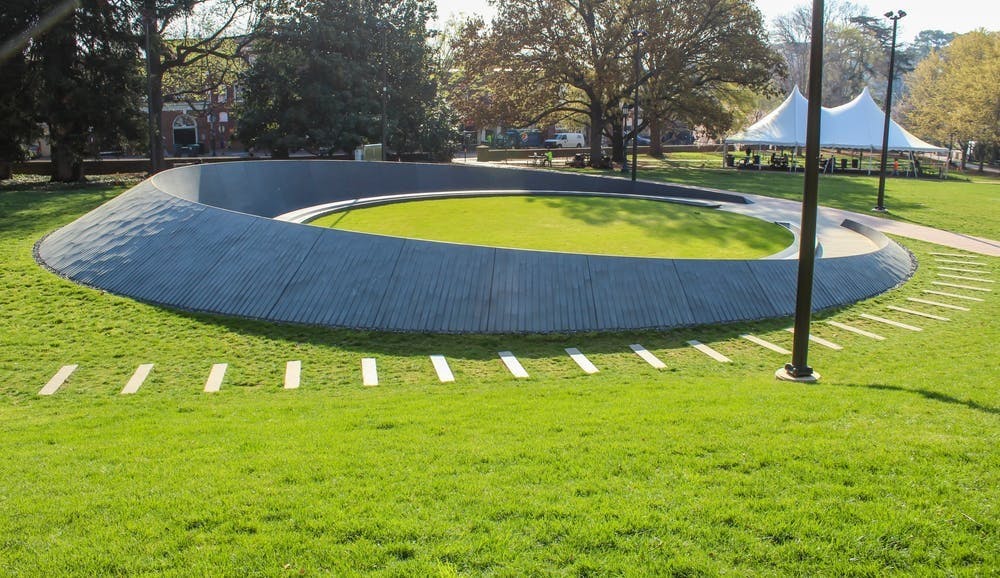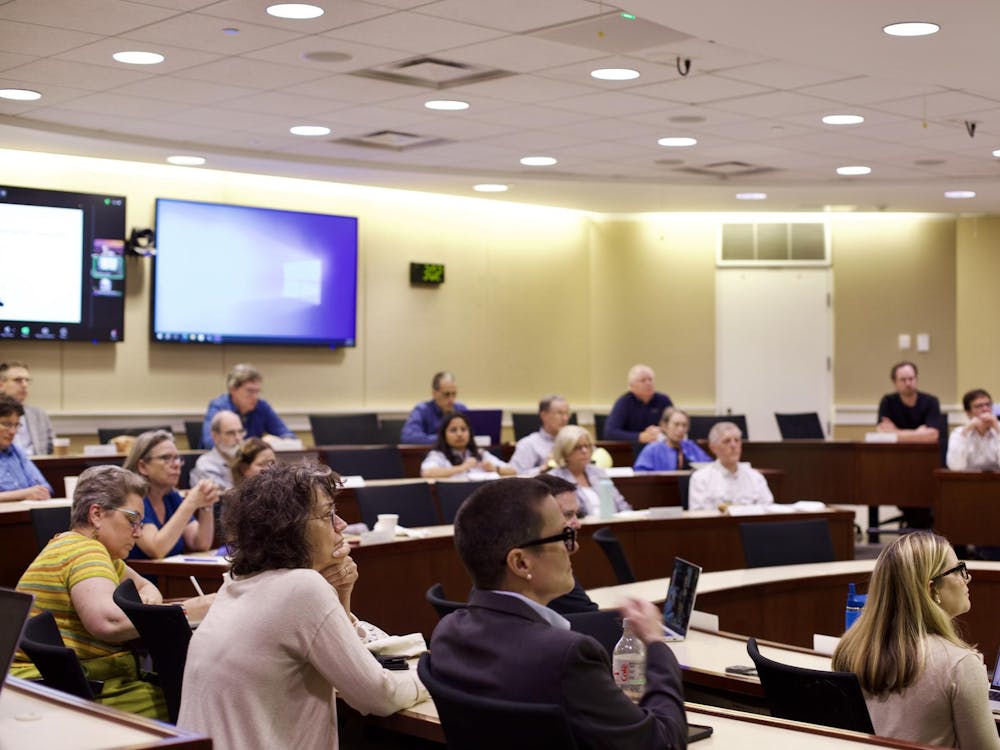Many minds will be on the University’s history this Wednesday as community members gather to celebrate Founder’s Day, or Thomas Jefferson’s birthday. This day marks a variety of sentiments. Some may associate the day with the distribution of Thomas Jefferson Foundation Medals — awards granted to accomplished individuals in the fields of architecture, law, citizen leadership and global innovation — while others may associate the day with ample activity by the University’s various secret societies. The occasion has also received pushback, such as through the defacement of Jefferson’s statue and peaceful protests by student groups in recent years. In solidarity with and support of these efforts to demand a more nuanced understanding of Jefferson’s legacy, we call on the University to further educate its community beyond an overly-simplistic glorification of Jefferson.
First, we wish to acknowledge the unfinished progress University administration has already made to inform the University and Charlottesville community on the history of this institution, such as removing the George Rogers Clark Statue and instituting a racial equity task force. Members of the University faculty, too, have taken it upon themselves to teach students and affect change in their own right.
Even so, progress remains to be seen. Students and CIOs across Grounds have been advocating for reform for decades. We implore the University to address and meet the longstanding demands of the Black Student Alliance, Minority Rights Coalition, History of Enslaved African American Laborers, Descendants of U.Va and many more. Despite the University’s unfinished efforts to come to terms with its history, student groups and CIOs on Grounds have gathered to create and lead tours that educate their peers about the University’s racist and exploitative past. While we praise these achievements, the burden of reframing Jefferson’s legacy and contextualizing the University history cannot solely fall on students — particularly marginalized and unpaid student leaders.
First and foremost, the University must educate its students. BSA has already called on the University to create a mandatory course on the University’s founding. We reiterate this demand and call on the University to implement a mandatory seminar for all first-years detailing the history of enslaved laborers and racism at the University, as well as more recent history — particularly the events of Aug. 11 and 12, 2017. In creating these classes, administration can and should reach out to student organizers who have already created tours on historical racism at the University. Moving forward, however, it is crucial that these student leaders are paid and given resources by the University to continue this work. These difficult conversations are integral to ensuring that the University community continues to understand its history as students cycle in and out every four years.
Along with educating new students, the University must also support the descendants of enslaved laborers who built the University. More specifically, we echo the demands of descendants — the University should provide financial support and scholarships to the relatives of those who lived, worked and built this University.
Moreover, there are a plethora of physical changes that must be made on Grounds. In addition to digital contextualization promised by the Board of Visitors last year, visual markers must be erected to contextualize various statues, memorials, buildings and other sites on Grounds. Put simply, a commitment to fostering informed perspectives deserves more than a QR code. Secondly, the University must recognize the demands of the MRC and fully remove the Whispering Wall from Grounds, rather than simply rededicating it. This monument — dedicated to and named after a Confederate soldier — has no place on Grounds. In place of racist symbols, administration should undertake a substantive renaming process across Grounds to add statues of and name buildings after more contemporary, diverse and important historical figures from the University. The recent renamings of what were previously called Ruffner Hall and the planned renaming of Maury Hall prove this change is possible.
Student organizations across Grounds — like BSA, MRC and HEAAL, just to start — are doing unpaid labor everyday to hold the University accountable. However, this burden cannot fall completely upon student organizers. This Founder’s Day, we reiterate the demands listed in this editorial — and elsewhere — in the hopes that the University may redress its history and serve as an actively anti-racist institution. In the meantime, we implore our peers to take the initiative to better understand the Grounds they walk daily. From taking classes to going on historical tours, it is the responsibility of each student at this University to understand and be respectful of the history that has built our community.
To assist in this, the Editorial Board has compiled a non-exhaustive list of resources. The Editorial Board welcomes any suggestions for additions to this list. We thank the creators of these works for their commitment to education.
- “The Hemingses of Monticello” by Annette Gordon-Reed
- “My Monticello” by Jocelyn Nicole Johnson
- “White Blood: A Lyric of Virginia” by Kiki Petrosino
- “Educated in Tyranny: Slavery at Thomas Jefferson’s University” by Maurie D. McInnis and Louis P. Nelson
- “Beyond the Hashtag: How to Take Anti-Racist Action in Your Life” by Zyahna Bryant
- Vinegar Hill Magazine
- President’s Commision on Slavery and the University
- Heather Heyer Foundation
- The Descendants of Enslaved Communities at U.Va.
- AMST 1050: Slavery and Its Legacies — offered in Fall 2022
- EDLF 3250: Intro to Citizenship and Activism: Critical Exam of Jefferson's University — to be offered in Spring 2023 depending on enrollment
- ENWR 2520: Writing the Memorial to Enslaved Laborers at U.Va.
For any additional resources or materials that should be included on this list, please email eb@cavalierdaily.com. The Cavalier Daily is committed to publishing a diversity of opinions, perspectives and letters — and we would love to hear your thoughts.
The Cavalier Daily Editorial Board is composed of the Executive Editor, the Editor-in-Chief, the two Opinion Editors, their Senior Associate and an Opinion Columnist.







